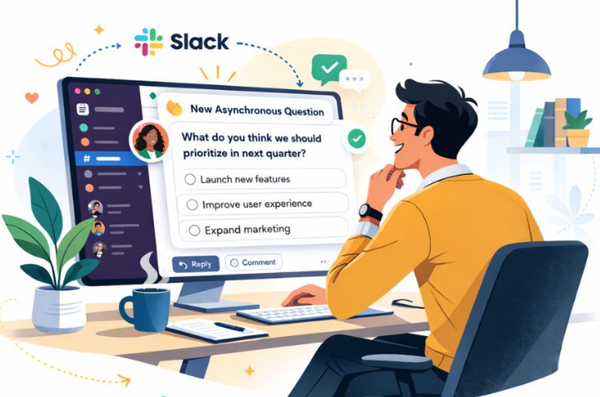How to respond to a performance review: Tips for every outcome
Respond to any performance review confidently with these tips from BuddiesHR. Navigate through tough talks and express appropriate gratitude for a good review.

How to respond to performance review outcomes can leave some people in a cold sweat - even if the result was positive. What should you say? How should you say it? What’s too much? What’s not enough?
In this article, we give you some pointers to show you that it’s easier to do than you think. Whatever the outcome of your performance review, we’ll help you respond in a way that will build a positive relationship with your boss and navigate tricky conversations.

Key Takeaways
- Stay calm and professional.
- Negative reviews aren’t career death sentences.
- Proactively create an improvement plan if you’ve received a bad performance review.
- It is appropriate to acknowledge a positive performance review.
- Use every review—good or bad—as a moment to recommit to growth and contribution.
- Keep momentum going between reviews by self-assessing. This will prevent surprise feedback.
Table of Contents
- How to Respond to a Negative Performance Appraisal
- How to Respond to a Positive Performance Review
- General Guidelines for Responding to Performance Review Feedback
- Conclusion
- Frequently Asked Questions
How to respond to negative performance appraisal
Not every poor performance review is an indication that your employer wants to get rid of you.
From a reviewer’s perspective, negative feedback isn’t a walk in the park either. Most people would rather keep to positive talking points, and if it is legitimate constructive feedback, then that’s a good sign. Use the following tips to get back on track.
- Listen carefully to specific feedback - It’s common for both positive aspects and negative aspects to be discussed in a review. You may pick up on certain phrases that can help you understand the full picture.
- Clarify what you don’t understand or agree with - Clear communication is important during a formal assessment. Don’t be afraid to get better insights.
- Focus on effective strategies for professional growth - It may be tempting to get stuck on negative feedback, but that won’t help you overcome obstacles. If the comments have substance, ask what you can do better during the next review period.
- Work on an action plan - Employee development has always been collaborative. Look for a way forward with your manager, and ask what new skills you could learn, and what expectations there are of you, by the next follow-up.
- Ask for help - You may be out of your comfort zone, and that’s ok. If your problem-solving skills are coming up short, asking for support shows commitment and that you value self-improvement.
- Track progress - Once you identify areas for improvement, set dates to follow up on your progress. Improve your performance one step at a time, and take note of the fact that you’ve done it. This will help to keep you motivated.
In the moment, a negative review might feel like a big deal, but it can also be a wake-up call. How so? Well, either your performance is being wrongly assessed (and this is your opportunity to correct it), or your manager is trying to help you get back on track before the situation declines.
In summary: Sometimes others don’t see us correctly, and sometimes we don’t see ourselves correctly. Either way, this is an opportunity to fix that.
If there’s been miscommunication about performance objectives, this can lead to a negative review. Your team may need a performance review system to help track and organize performance data. This will increase transparency and streamline the entire review process for you and your boss. Why not suggest it, and give your whole team a better way to get reviews done!
Ace the next performance review
If you’re going to be the ‘comeback kid, ’ you’ll need to make a plan and stick with it. In the movies, the hero becomes the guy (or gal) who had everything stacked against them, and then succeeded against all odds. What can you learn from them?
- Get a good mentor. This is someone who knows what should be done and is willing to teach you.
- Listen carefully to that mentor. Following the well-laid-out plan of the guru is always a good idea.
- Put effort into perfecting new skills. Yes, getting your performance on track will require small jumps in progress - this must be consistent.
- Keep a good attitude. If you really want to improve your performance, you’ll have to cultivate a ‘can-do’ attitude.
- Be ready to step up and show what you’ve accomplished when your moment arrives.
- Celebrate your victory with those who helped you get back on track.
How to respond to positive performance review
Don’t make the mistake of thinking that a good performance appraisal is an obligation. Your boss has seen the positive impact you’ve made and has acknowledged your high-quality work. This deserves some response. You may not want to overdo it, and with these pointers, you’ll be courteous without going overboard.
- Show appreciation for the feedback - A sincere. ‘Thank you for the good review - it means a lot’ is a good start, and often enough. A few kind words when someone has acknowledged you is appropriate.
- Highlight the accomplishments you’re proud of - You’ve worked hard throughout the year, and now is your time to show gratitude for the team’s success as well as your own. This reinforces that you enjoy feedback based on certain milestones.
- Ask for additional responsibilities - If appropriate, ask for an opportunity to practice those new skills you’ve been working on for the past year, or let your boss know you have some ideas or suggestions you’d like to discuss. Do this while things are in your favor.
- Express future commitment - Assure your boss that you’re committed to even faster growth, and better results for yourself, the team, and the company.
- Do a self-assessment at regular intervals - Keep the last review fresh in your mind, and stay ahead of the curve by assessing your professional growth regularly. This will keep the momentum of positive reviews going.
General guidelines for responding to performance review feedback
Regardless of the nature of the feedback that you receive, there are a few general guidelines that are always helpful when dealing with sensitive matters, such as a performance review.
- Always remain calm and professional - The work environment is not the place to lose your cool or let out the frustrations that have been boiling over. You can seriously damage your reputation, even if you feel your reaction is justified. It takes a long time to get a good reputation; don’t blow it in a few minutes.
- Raise your concerns through the right channels - Every company has a process for raising concerns, and you’re more likely to get a resolution if you follow that process. If you’re getting nowhere with your manager, escalate to HR, and then let them guide you from there.
- Document everything - Have concrete performance evidence. How you feel about it vs. how your manager feels about it isn’t going to be helpful when there’s a dispute.
🤓 Fun fact: A Gallup study found most employees like to receive feedback frequently (good or bad) and want it to be future-focused.
Conclusion
When you want to respond correctly to the outcome of a performance review, you need to understand what that means. Negative reviews can be tough and require calm wisdom to get through, while good reviews shouldn’t be taken for granted. You can keep things on track and continually work towards improvement and greater success by responding in the appropriate way. As the old saying goes: ‘It's not what you say, but how you say it’.
If you’re looking for more tips on how to handle performance reviews, or want the inside scoop on what managers are thinking about when they’re preparing for one, here are more insightful expert tips:
- Self Review - How to write a performance review for yourself (with examples)
- What is the GROW coaching model for better performance?
- Top 15 areas of improvement at work for ‘go-getting’ employees
📚 Learn more about how BuddiesHR has been helping companies increase employee satisfaction and reduce staff turnover.

Frequently Asked Questions
1. How can I acknowledge a good performance review?
Assuming your review was face-to-face, you could politely thank your boss for the positive feedback and comment on one or two aspects you appreciated. If you received a review electronically, a quick, ‘Thank you for the great review - very much appreciated’ response will be enough.
2. What can I say to my boss when I’ve been given a 5-star performance rating?
The ‘right words’ are not as important as how you say something. Saying a genuine, sincere, and heartfelt, ‘Thank You’, can be enough. If you want to say more, tell them how happy you are to be acknowledged for the effort you’ve been putting in, and their continued feedback.
3. Am I expected to comment on my performance review?
Good question. If you received a positive review, it’s easier to say thank you and tell them how much you appreciate the input. However, a negative report may feel difficult to acknowledge. But you absolutely should. A comment like, ‘Thank you, I will take the feedback under consideration, and look forward to discussing it further’ is a good start.
4. How should I respond to a performance improvement plan (PIP)?
Firstly, don’t respond immediately. Take a few minutes (and deep breaths) to gather your thoughts. Then acknowledge the email, and say that you will review the plan, and would like to discuss how you can improve your performance. If you’re already trying hard and can’t get it right, perhaps the job isn’t your best match?
5. Can I argue the outcome of a negative performance review?
If by this you mean, can you get it changed? That will depend on whether you have specific examples that show a different result from the one your manager has come up with. If you do, then by all means, address it with your superior. Hard data is difficult to argue with.





